Is it being fuelled by a retreat from technology, a focus on crafting, or the will to slow down and pause? Simple, robust, solid wood furniture seems to be making a comeback.

April 21st, 2019
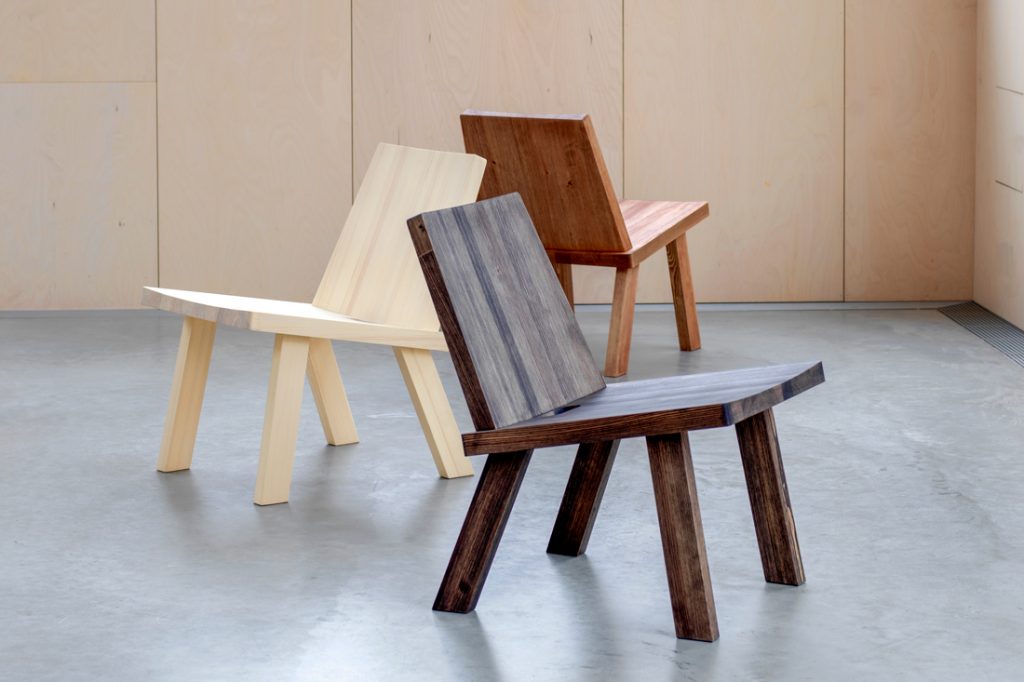
Designer and carpenter David Ericsson’s Pinzo chair for Blå Station consists of just six pieces of pine. Ericsson was asked to interpret the spirit of Blå Station, and in so doing he looked beyond the Swedish brand and took inspiration from Enzo Mari’s straightforward approach to wood. He also studied African seating shaped directly from tree trunks.
Says Ericsson: “There’s a clear African inspiration, like how massive sturdy chairs were sculpted out of giant tree trunks. I’ve given Pinzo a Swedish touch: square and angular, open at the front and more fleshy at the back where the seat and backrest join.”
Blå Station calls it a “sturdy little punk of a chair” with an almost brutal simplicity of construction. The backrest is finger jointed and a hole in the seat serves as a handle.
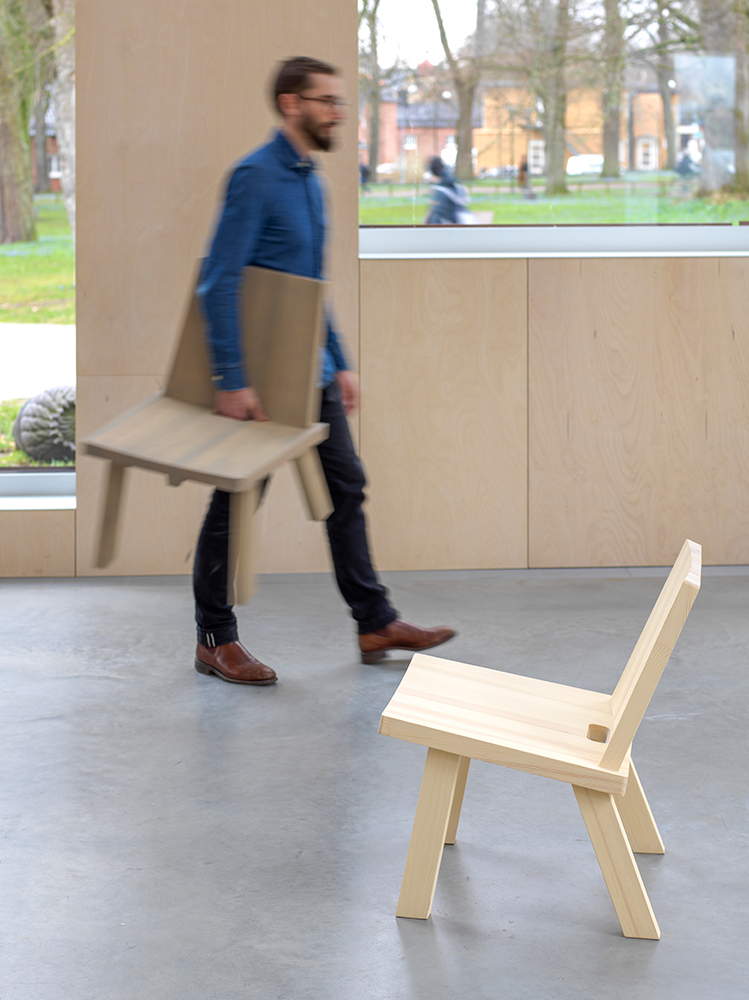
The decision to work with Swedish pine was strategic, as Ericsson explains: “It’s idiotic to send wood half way around the world for processing, then back again. Why not deal with our golden green pine treasure right here?”
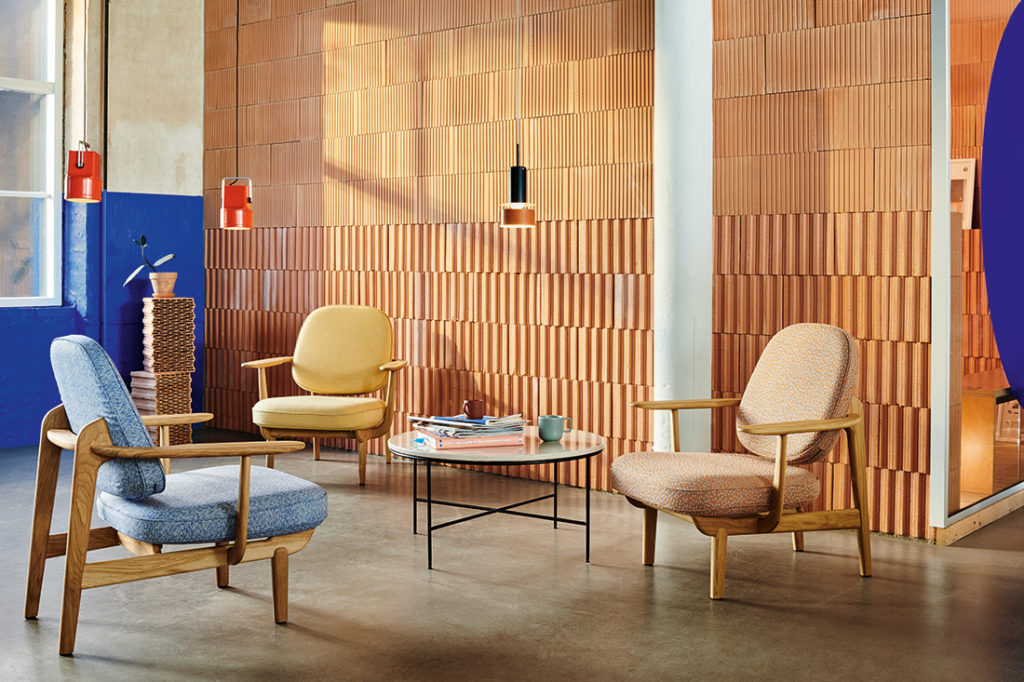
JH97 by Jaime Hayon balances past and future, says Fritz Hansen, making lounging a new art form. The idea was to create a ‘typical’ Danish lounge chair, but in typical Hayon style, that involved drawing inspiration from the unexpected – in this case, the shape of the pelican.
Explains Hayon: “We knew from the start what we wanted to achieve: an extraordinary and seamless addition to the Fritz Hansen universe. We also looked to nature: to the rounded, streamlined shape of the pelican’s beak and body, which is apparent in the curved shapes of both the frame and the cushions.”
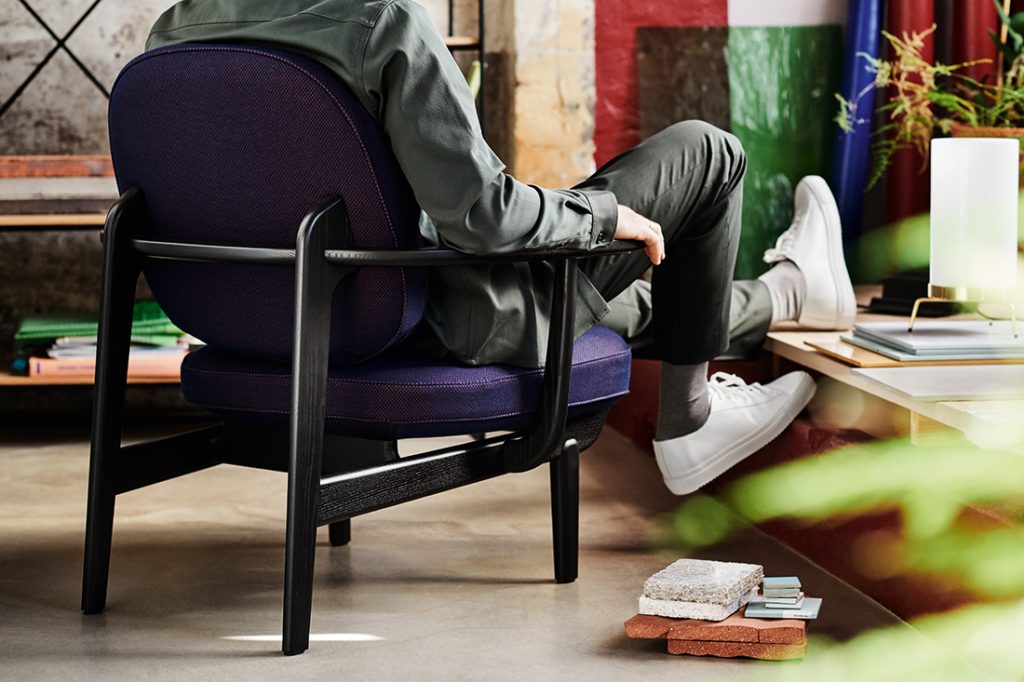
The low-slung silhouette of JH97 gives a laid-back expression. The exaggerated armrests and the generous backrest promise excellent support for the body. The backrest is angled for comfort during prolonged periods of sitting. The solid oak frame is assembled by hand. Cushion covers are detachable.
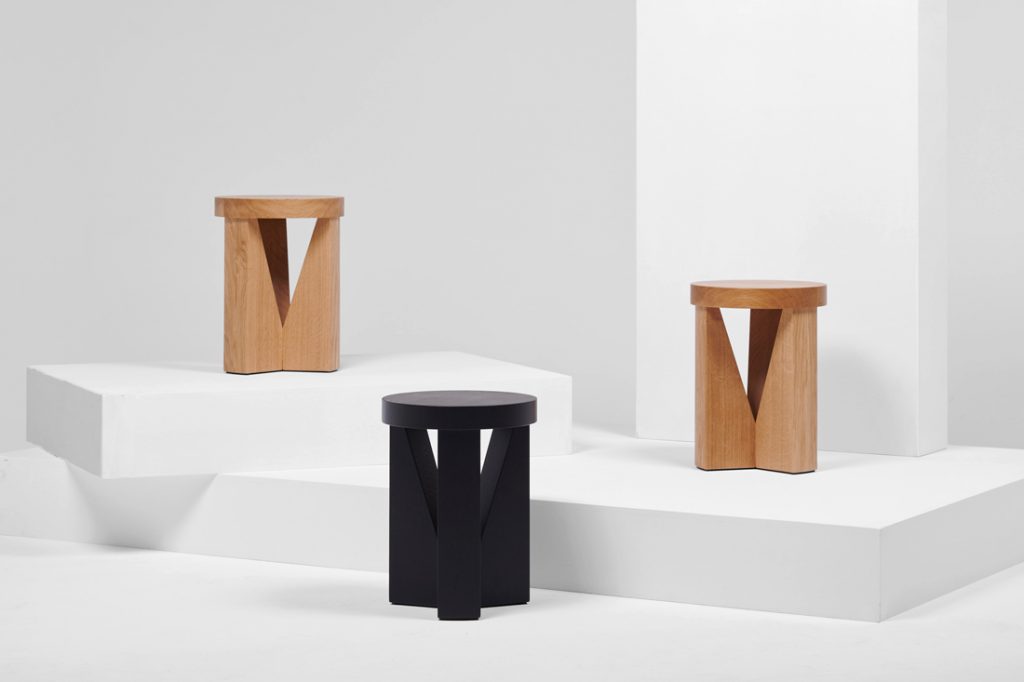
“If I am being provocative,” says Konstantin Grcic, “it’s in that Mattiazzi has a lot of technology and I ask them not to use it, because I don’t think it’s always necessary. To see what we can achieve without all the technology is important.”
Meet Cugino by Grcic for Mattiazzi, and decide for yourself: is it a stool or a side table? It could be both, says the brand, and it will find its use over time.
With its form open to interpretation, this solid oak piece was designed with a spirit of experimentation – as an interplay of solid and void, rather than for a specific function.
“Cugino is the result of many tries; it happened over time, with wanting it to be an object that we don’t already know, but also something that is maybe a little bit familiar,” explains Grcic.
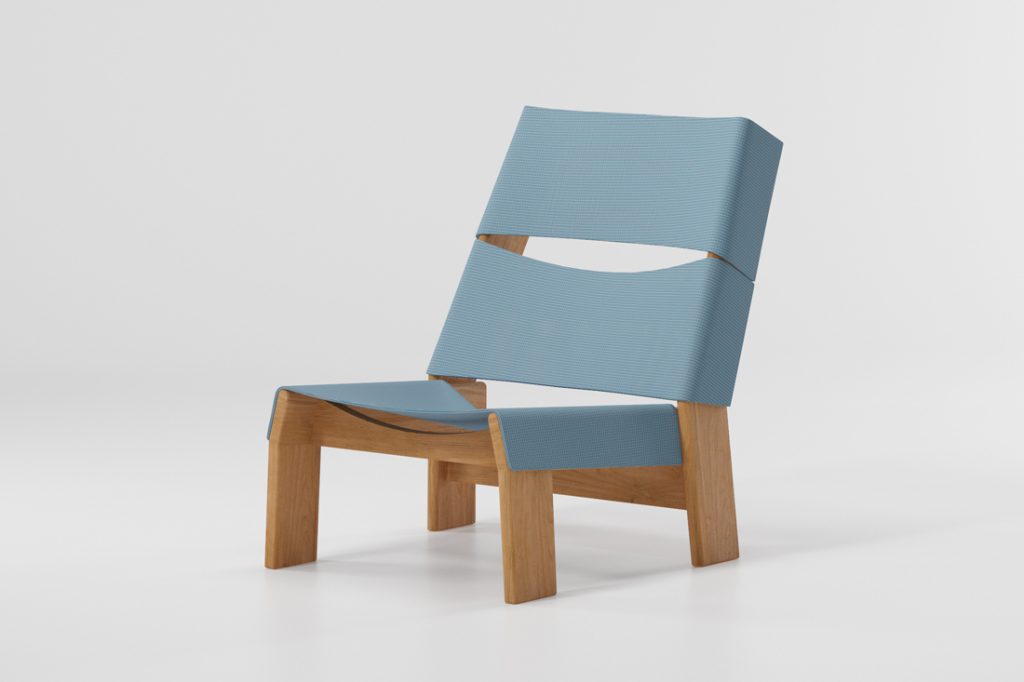
Patricia Urquiola’s latest for Kettal is a dining chair and club armchair collection called Band that gives centrestage to the materials composing it.
The idea behind the collection was to break down the chair structure into clearly definable parts. The structure is made up of repetitive angular shapes in teak that are overlaid with three clear-cut bands of Kettal’s Terrain fabric.
The ‘low-res’ shapes give the chair a schematic, even conceptual character. Band can also be produced in aluminium.
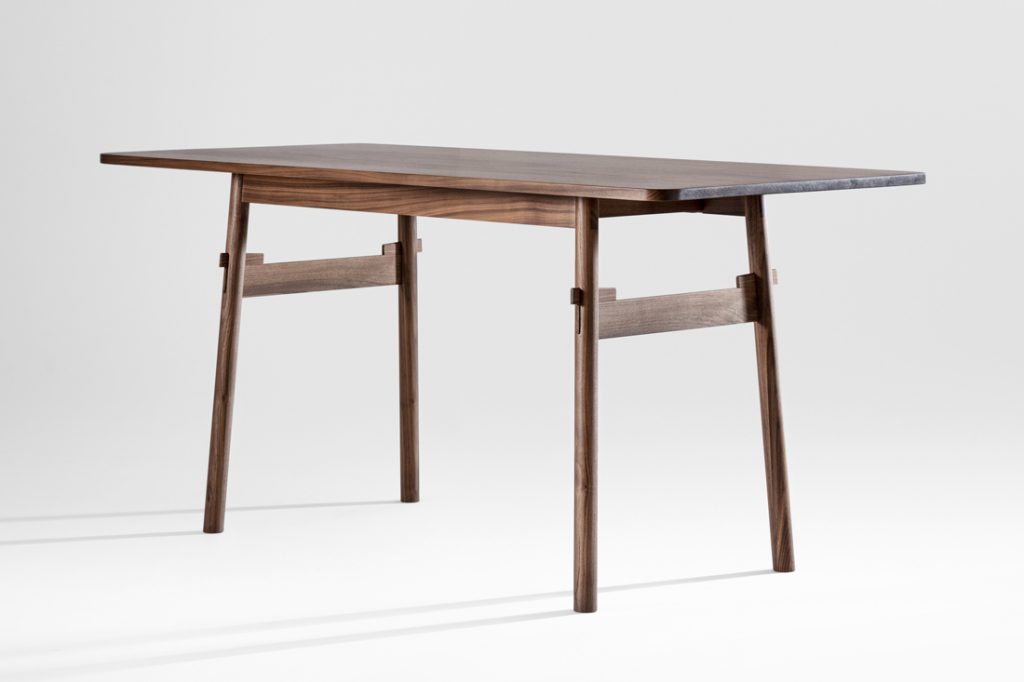
Timber crafting and a celebration of construction define the Taut table designed by Klemens Grund for Mattiazzi. Taut is a lightweight slot-together composition of nine parts that is shipped as a flat pack.
Traditional connections like swallowtail and wedge joints allow the end-user to assemble the table using a rubber mallet and a turning pin. The attention to detail goes down to the level of sandpaper coating being applied to one side of the wedges to prevent slipping.
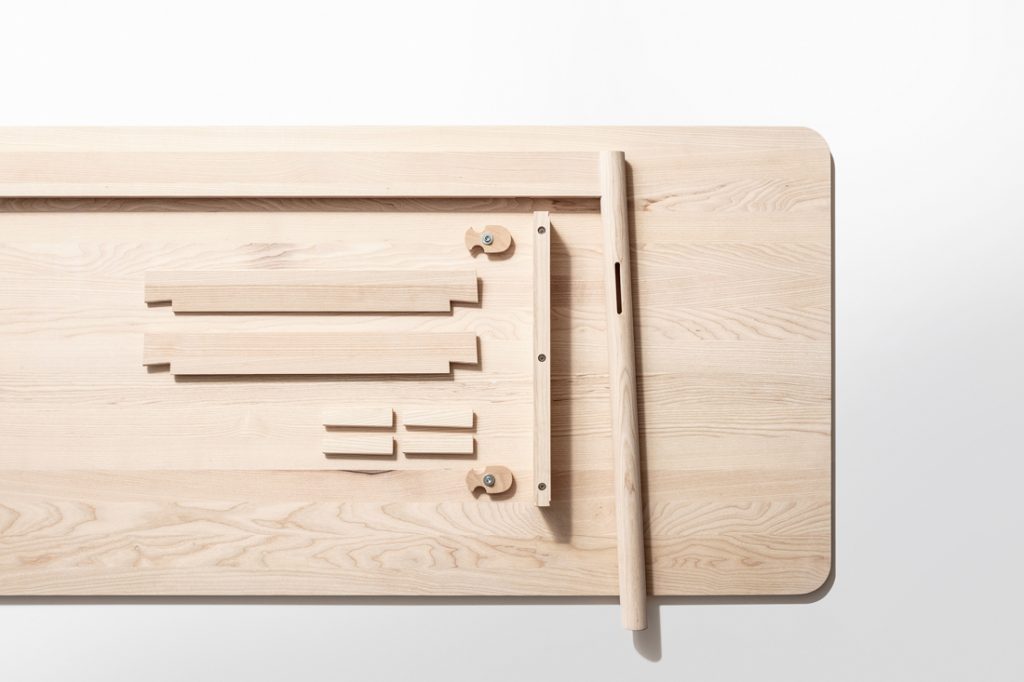
Grund’s objective was to create a light, well-crafted, reduced and demountable table that is suited for a variety of life situations. Taut’s formal clarity and the expression of its joints help to demystify its construction, while its amenity is maximized by its light weight; the table top is particularly thin at just 20 millimetres.
Klemens Grund took inspiration from architect Bruno Taut, who had been fascinated by Asian cultures and philosophies. Taut is produced in solid ash, oak, American cherry and American walnut.
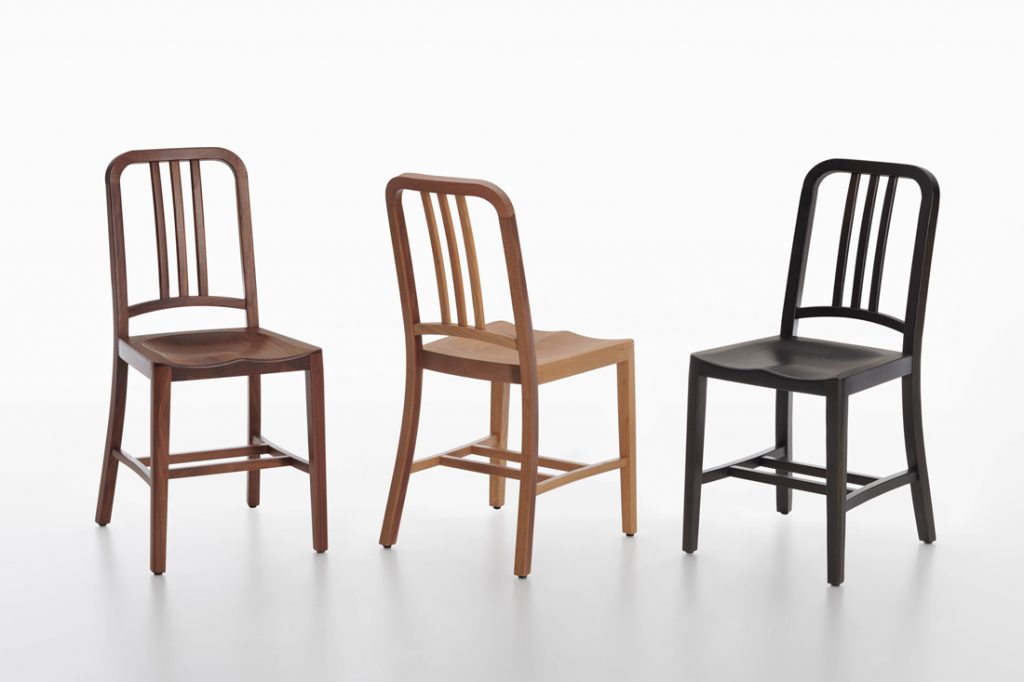
Emeco’s classic aluminium 1006 Navy chair has been released in oak and walnut on the occasion of its 75th anniversary.
“Wood is one of the few organic, natural renewable resources,” says Gregg Buchbinder, Chairman of Emeco. “It’s a strong material to make a long-life chair, which fits our Navy collection perfectly. With its rich nuances and smooth fingertip touch, wood has a special beauty that makes you really appreciate nature.”
The timber is locally sourced from sustainably managed forests and crafted in collaboration with Emeco’s Amish wood crafting neighbours in Lancaster, Pennsylvania.
The production of the wood version remains true to the original aluminium Navy. The wood grain on the bent wood backrest mimics the brush grain of the original brushed aluminum. The wood types were selected to be timeless, useful, and hardwearing – true to the Navy heritage.
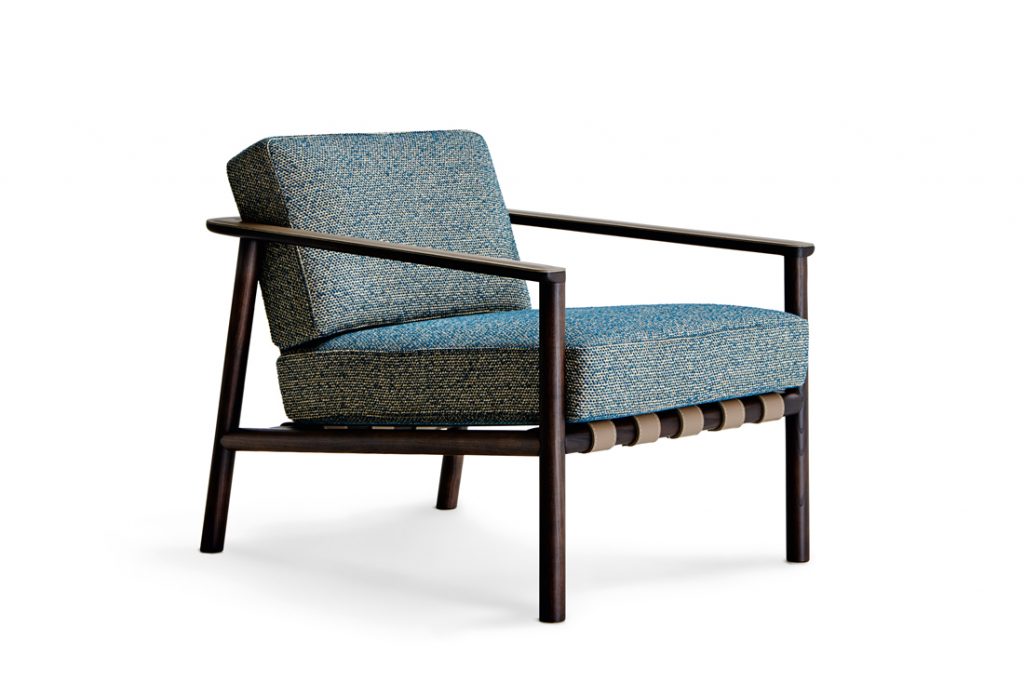
Molteni&C’s stand at the Salone del Mobile this year was inspired by mid-century houses, and that character can also be seen in the brand’s new Gillis armchair.
Vincent Van Duysen designed both the stand and the armchair. The latter has a solid wood frame with leather straps, and was envisioned for use in the hospitality sector (lobbies, lounges, bars and rooms) and in the home.
“Gillis has a very strong modernist language. Perfectly crafted timber joinery details, characteristic leather straps at the back of the backrest, the armrest padded with leather made of one single piece gently turning around the backrest make the distinctive design traits of this compact yet very comfortable armchair,” says Van Duysen.
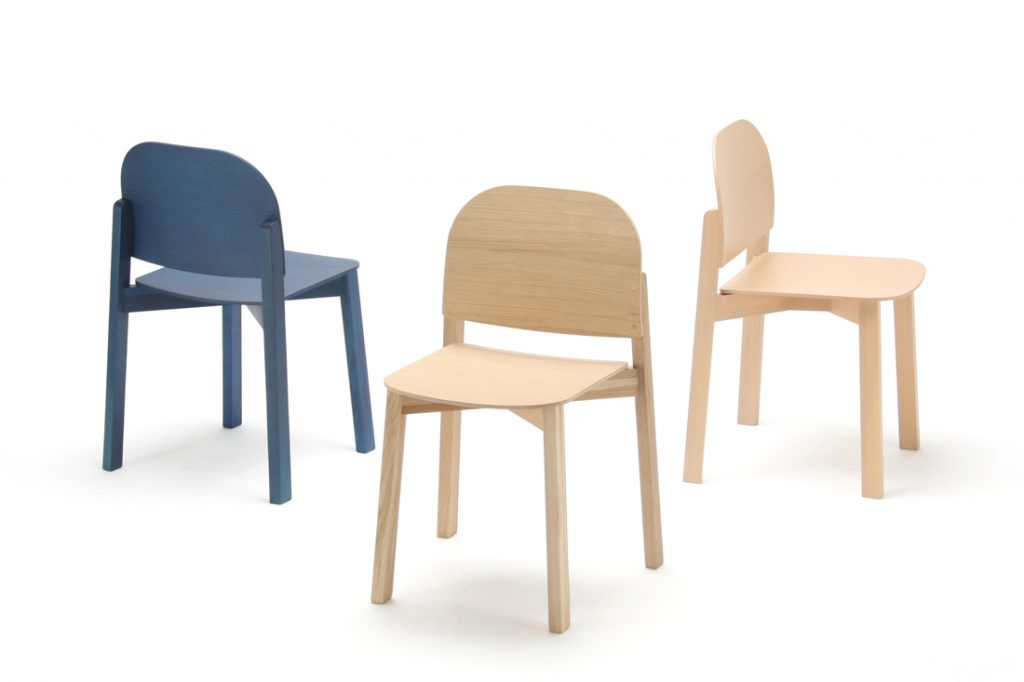
Tokyo-based Swiss designer Moritz Schlatter’s Polar Chair for Karimoku New Standard (KNS) is made with solid, sustainably sourced Japanese oak. KNS describes it as “a universal, compact and stackable chair” but one with a distinct character defined by the contrast between the soft (curved seat shape) and straight (legs).
Friendly in appearance and thoughtful in terms of functional (offering stackability as well as comfort), Polar Chair has been designed for use in both domestic and public environments.
During Milan Design Week, KNS showed it collection both at the Salone del Mobile and the Fuorisalone, creating the KNS Home & Garden in a Brera apartment. It was a space for people to relax and take a break from the madness of the week, and enjoy food prepared by a Japanese chef.
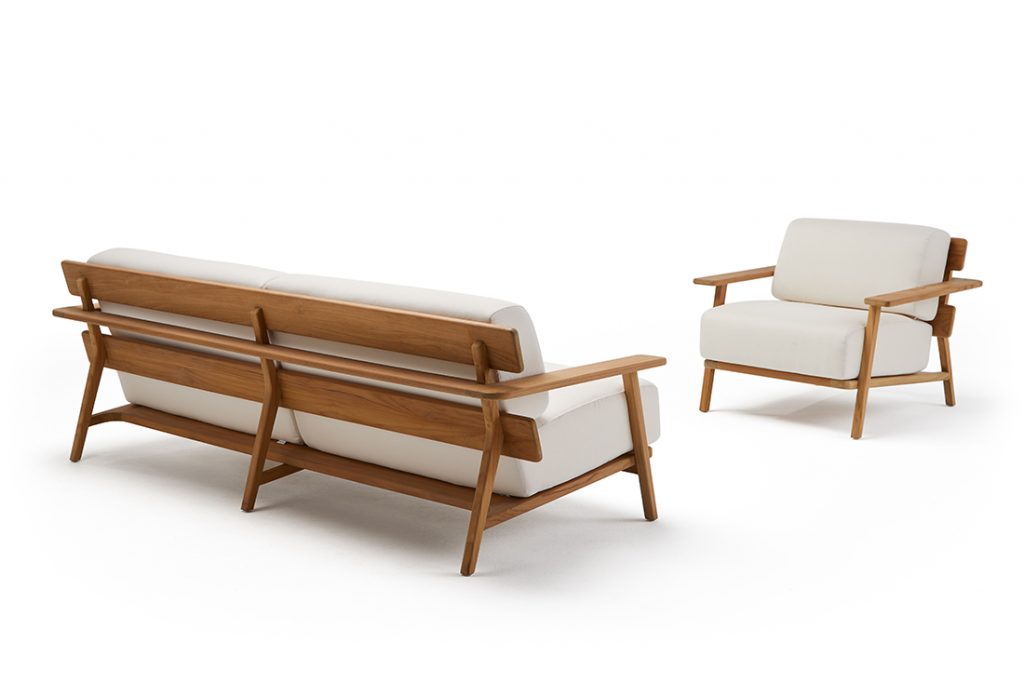
Spanish brand POINT has released a collection of outdoor sofas and armchairs that takes its name from its shape. Gabriel Teixió designed the Paralel collection with an emphasis on the parallel components of its clearly defined wood structure.
The long armrests extend around the backrest in parallel with the back slats, but at a 90-degree angle to them. The legibility of the structure and the overall configuration gives the collection an echo of humble mid-century forms.
A searchable and comprehensive guide for specifying leading products and their suppliers
Keep up to date with the latest and greatest from our industry BFF's!

BLANCO launches their latest finish for a sleek kitchen feel.

XTRA celebrates the distinctive and unexpected work of Magis in their Singapore showroom.

With the exceptional 200 Series Fridge Freezer, Gaggenau once again transforms the simple, everyday act of food preservation into an extraordinary, creative and sensory experience, turning the kitchen space into an inspiring culinary atelier.

The reimagined format of ORGATEC for 2024 has reinvigorated the world’s leading trade fair for workplace design, resulting in the most successful edition to date. Read on to discover highlights and new trends from ORGATEC 2024.

Singapore Design Week is back and bigger than ever with a people-orientated theme featuring diverse events, workshops, talks and tours.
The internet never sleeps! Here's the stuff you might have missed

New forms and patterns have taken shape in the latest acoustic panels from Woven Image – bringing together cutting-edge design to create an immersive, sensorial product.

The 2024 Australian Institute of Landscape Architects (AILA) National Awards have revealed their winners, highlighting renowned landscape architects and distinguished academics from the built environment.